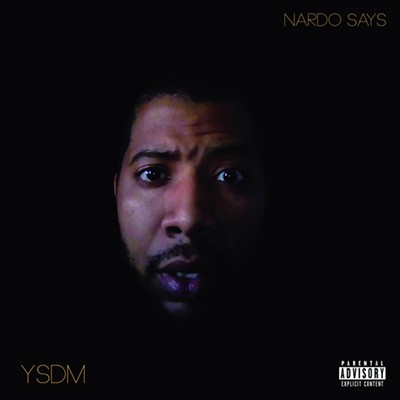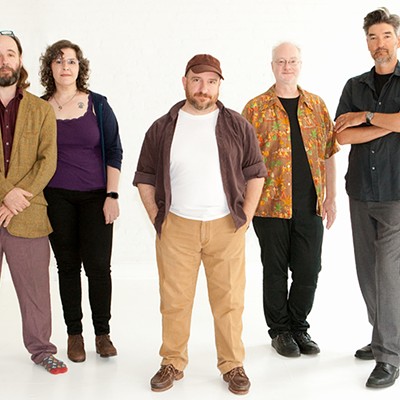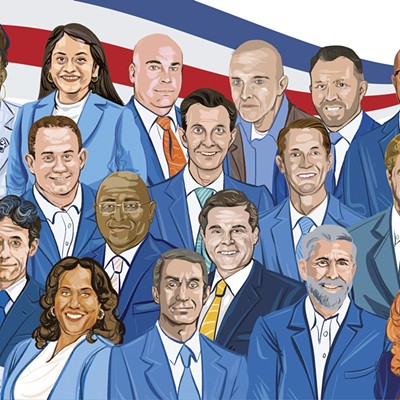Thursday, April 24, 2008
Interview: Sasha Frere-Jones (part 1)
Note: this is the first of a three-part series that will document my talk with New Yorker pop music critic Sasha Frere-Jones, who appears at Carnegie Mellon University on Tuesday, March 29.
CP: The first thing I wanted to talk about was a little bit about how you got into music writing – I know you were in a band for a long time –
SFJ: Kind of by accident. Well, that's kind of stretching it. It was certainly not a plan. I mean, I didn't accidentally write something, I obviously wrote something intentionally. Yeah, I was – I mean, I am a musician, altho I haven't really honestly done anything htat real in a few years. It was – '94, and I was definitely concentrating on my band Ui, and there was a writer for the Village Voice named Ann Marlowe and she came to an Ui show, and our drummer knew her, and I loved her writing, and I said, will you review us or something like that, and she said, "No, I don't like your band." And I said "Oh, great." And she said "But, I'd like you to write something for me," and I said "What are you talking about?" and she said "Well, I'm starting a fanzine." And I said "Oh, how do you know I write?" And she said, "Well, you just look like you write."
Okay, you've insulted me twice in like 3 minutes. Which is really Ann, she's the most direct person.
She had a zine called Pretty Decorating, and I wrote a few pieces [fot it]. The first piece I wrote was sort of a rant about indie rock, which seems to be what I do. So I started this dumb career by slogging on indie rock.
I was sitting with my friend Andy Hawkins, who's a musician that I played with sometimes who is in this great band called Blind Idiot God, and we were sitting there grousing, in that annoying way that people do, about, I think, Guided By Voices and poorly recorded rock and we were like, "Why don't people just record their shit properly? Like, you gotta save up and do it right." And she said "Write down that thing you just ranted and rant that for me."
And that's what I did, and I wrote a few pieces and everything after that was an invitation. The most significant exchange was with Simon Reynolds, the critic – in a way it's more his fault than anyone's. He wrote a piece, ironically saying basically that American bands suck, Britain has this great new thing called post-rock. I mean, it's ironic because the bands he mentioned all suck. Bands that were supposed to be interesting for five minutes and really never were. And then my band ended up being called post-rock, and I wrote a piece back saying, no, American bands suck, it wasn't that great an exchange really, I'm sure it wasn't his best piece and it wasn't my best piece, but then the Voice asked me, we're going to do a post-rock section and you're in one of these bands, will you write something for it, and then that's what got it going, writing that first Voice piece.
They asked me to write more, then I had a column in the New York Post, which no one really remembers, probably because it's not on Nexis but also because no one really reads the Post. It's amazing that you can actually be in a newspaper with huge circulation and no one you know reads it. If you want to find out if there's really such thing as class, and divisions, get a column in the Post. Literally, no one will ever say, "Hey, I read your column!" I felt like I was writing for a fanzine, it didn't matter what I said – I don't think record labels cared that much. Who the fuck reads the pop criticism in the New York Post? Anyway, it just went from there. And I had day jobs and I always thought I was in a band. That's who I thought I was. But the writing started to take up more and more of my time, and it got to be something of an occupation, it ramped up when Slate asked me to write a column, then I got the call from The New Yorker about a year after that. But I hadn't really accepted it as a reality until recently. If you had asked me, I would've said I'm a musician, but, the last four years . . . . my first column was March of 2004. So I guess it's been four years.
CP: Talking about considering yourself to be a musician – how do you feel being a musician plays into your writing? Do you think that's something that's really important, or essential, for a music critic?
SFJ: No, I don't. I think the gig is largely about writing. That seems like an unbelievably tautological and dumb thing to say. But it's not, because I think it's much more important as a critic to be a thinker and a writer. Being a musician has given me a way to figure out certain things when I'm listening, but I think largely – my favorite critics are often not practitioners. I mean, there are a few musicians who are great critics; I think John Darnielle is a great critic, but Darnielle is really just a great writer, he'd be interesting about anything.
CP: He's kind of a nut.
SFJ: He's a nut, and he's interesting, and has an awful lot of energy.
I don't know, people tell me – they point out things that seem to maybe derive from being a musician but I don't know. My favorite critics are not musicians, generally.
CP: I've written about music and I've played music and I'd say my writing about music is probably a bit better . . .
SFJ: Also because music itself uses so much muscle memory and feels so involuntary, like eating or sleeping or whatever, physical things. Writing criticism, you have to do a lot of thinking and rethinking and stepping outside of yourself.
Somebody recently said to me that criticism should be about enthusing, and I don't really agree. I think that enthusing is fun, I like enthusing but I think a lot of what criticism is best at doing is putting it into context, doing aesthetic thinking.
Tags: FFW>>













